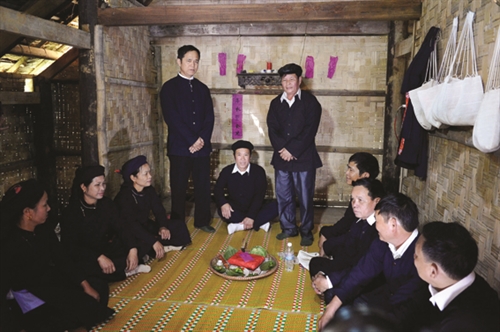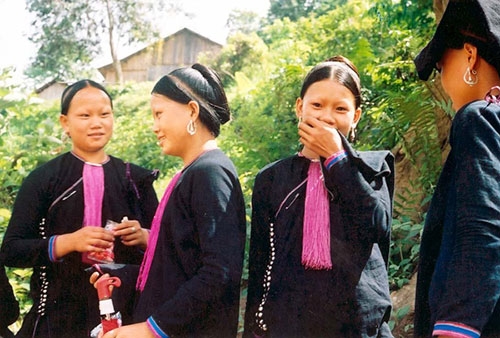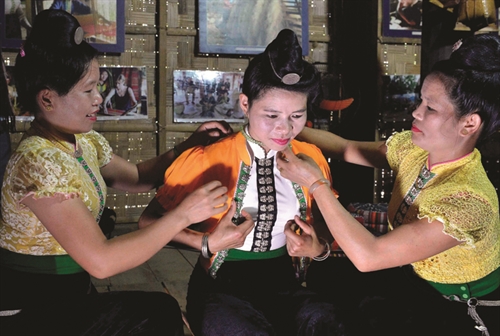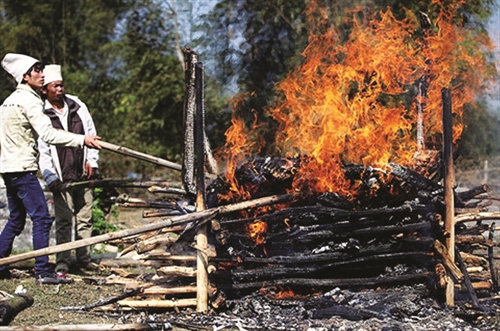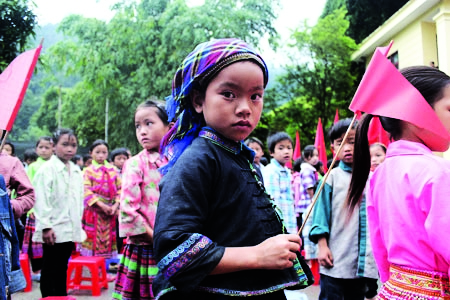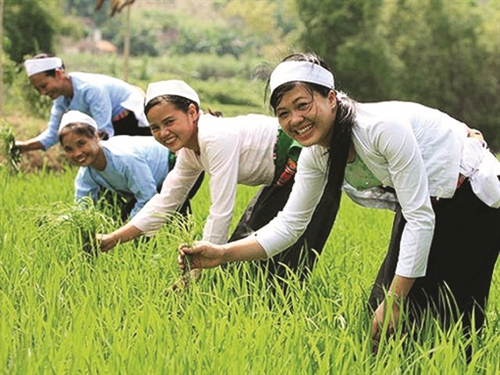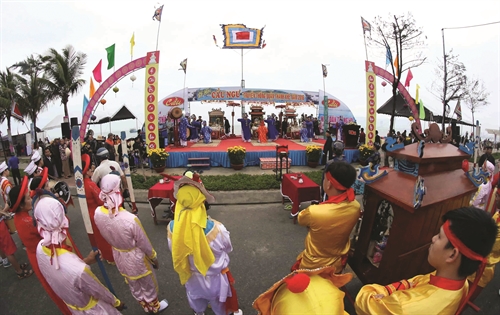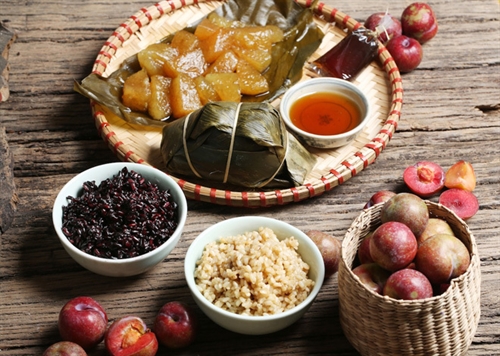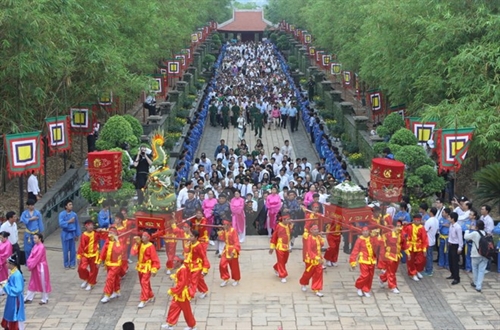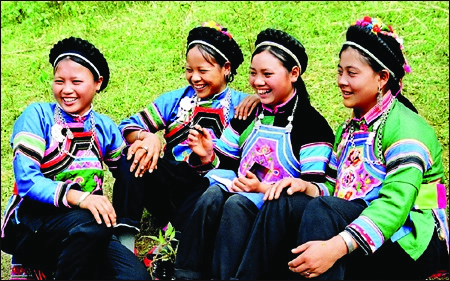>>Gong playing, unique festival of the Muong
>>Long Tong, unique farming ritual of the Tay
Ta Thi Tam
Ethnology Institute
The Tay Muong or Tay Hang Tong is a sub-group of the Thai, living in the central provinces of Nghe An and Thanh Hoa with a population of around 10,000.
The group, which bear traits similar to the black Thai in the northwestern region, lives on cultivation, animal breeding, crafts and trade.
The Tay Muong believe when a person passes away, his spirit will be divided into three separate parts which are van ton, van pai and van ngau phau peo. Van ton is the primary soul of the dead that will be escorted by his relatives onto the family altar for veneration and become phi huon (family ancestor). Van pai is the spiritual part that will be led to Muong Then (heaven) by a shaman in a seeing-off ritual held at his funeral. Van ngau phau peo is supposed to stay at the cemetery, taking care of graves of the family line.
According to Tay Muong custom, three days after a person dies, his van ton must be escorted home from the grave in a ceremony called mo cua ma (opening the grave) when the dead is allowed by gods to leave for home. If this day falls on a bad date, van ton will still be accompanied home but is supposed to temporarily stay in a shirt hung at the main pillar in hoong, the part of the house accommodating the ancestor altar, waiting for a good date to hold the ritual to make him phi huon of the family.
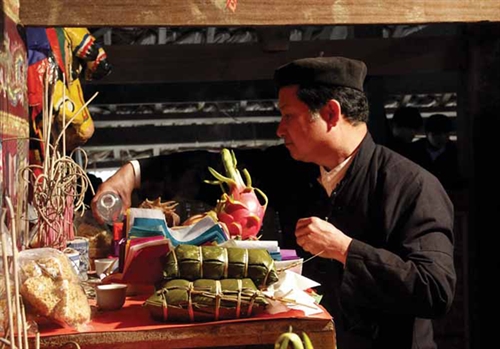 |
| The head of a Tay family prepares his ancestral altar before conducting the worshiping rituals__Photo: https://www.vinaculto.vn |
The Tay Muong only venerate their dead parents as phi huon. That’s why a married son whose parents are alive is not supposed to set up an altar at his own home. All rituals must be held at his parents’ home where his grandparents are venerated. Only when his parents die, the son will set up an altar at his home to revere them. But before venerating his parents as phi huon, he must invite a shaman to hold a ritual to take the spirits of his grandparents to Muong Then where they are promoted to a higher rank - phi dam, which means ancestor of the clan. This ritual is dedicated to Then Na, a god of the Tay Muong believed to have the power to reincarnate spirits into the living world. Phi dam consists of the spirits of all dead members of a family line, except those who die young or suddenly and thus cannot reunite with their ancestors in heaven as believed by the Tay Muong.
The altar for phi huon is set up in hoong, the sacred part of the home where the main pillar is erected. This pillar is believed to be the shelter for phi huon.
The Tay Muong have a taboo on taking raw meat in hoong, an act believed to trigger phi huon’s hunger. If making the family’s phi huon hungry, family members are believed to get sick. Family members are also not supposed to bring into hoong green leaves - the symbol of forest, that are believed to be the shelter of evil spirits which may annoy phi huon. It is believed that a person who breaches this taboo will be punished by phi huon.
Phi huon is venerated in most Tay Muong ceremonies the most important of which is the new rice ceremony, held in the tenth lunar month after harvesting time. The Tay Muong believe their good harvest is thanks to their ancestors’ support for which they are so grateful. In the new rice ceremony, every Tay Muong family prepares delicious dishes for offering to phi huon, which include com (young rice flake) or xoi (steamed sticky rice) made from the newly harvested rice, grilled fish, banh chung (rice cake with pork and green bean filling wrapped in banana leaves), banh day (flat round sticky rice cake) and goat horn-shaped cake. All the offerings are put on a tray placed in hoong. The family owner or an invited shaman recites prayers, inviting phi huon to enjoy the offerings and asking for their support for a better crop next year as well as good health and peace for all family members. The prayers also include a promise to make hearty offerings to phi huon next year when the family gets a bumper harvest. After the praying ritual, family members share the offerings together.
Other events in which Tay Muong ancestors are venerated include the lunar new year festival, wedding, new home celebration and newborn ceremony. Particularly, the lunar new year is regarded as a chance for the Tay Muong to show gratitude and respect for their ancestors. On the first day of a lunar year, every Tay Muong family gets up early, preparing a decent meal for offering to ancestors. The offerings include chicken, fish, sticky rice and liquor. The offering ritual can be officiated by the family owner or the village shaman who expresses thanks to gods and ancestors for their help in the old year and prays for their protection for a new year of peace, good health and prosperity.-
